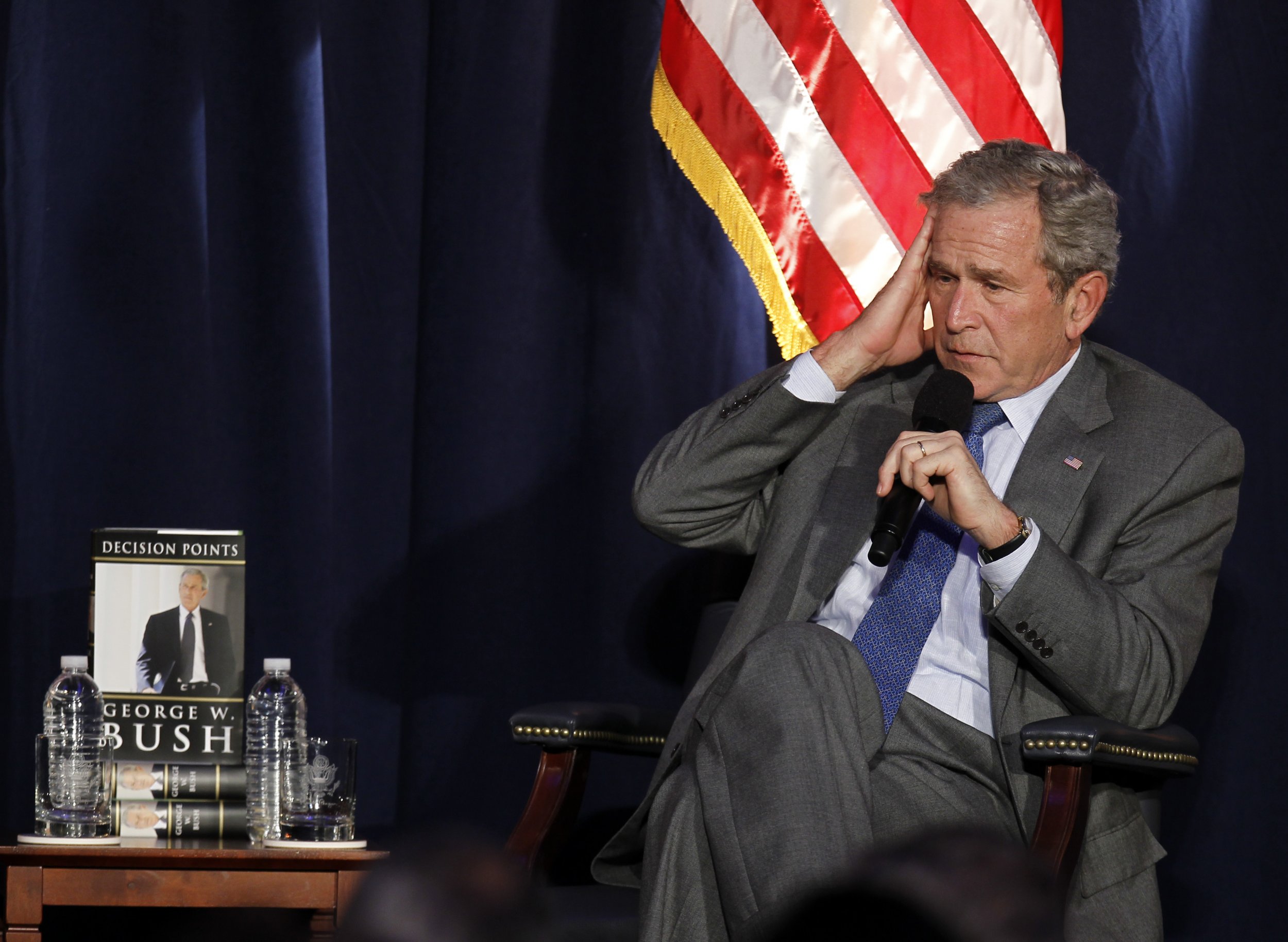
A peculiar tic of contemporary American nationalism is the notion that the American state, particularly if helmed by a Republican president, makes no errors of commission in its conduct of military affairs. No American war was ill-founded, or aimed at a threat that didn't exist or didn't warrant the effort.
This logic never applies in the domestic sphere for Republicans, where government programs are at best naive and bound to make problems worse or at worst, venal and Machiavellian.
This tic is the only reason I can think of that we're actually sustaining a debate in 2015 about whether, with the benefit of hindsight, it was a good idea to invade Iraq. Jim Fallows at the Atlantic argues that nobody should again ask a politician the question, since
the only people who might say Yes on the Iraq question would be those with family ties (poor Jeb Bush); those who are inept or out of practice in handling potentially tricky questions (surprisingly, again poor Bush); or those who are such Cheney-Bolton-Wolfowitz-style bitter enders that they survey the landscape of "what we know now"—the cost and death and damage, the generation's worth of chaos unleashed in the Middle East, and of course the absence of WMDs—and still say, Heck of a job.
I actually think this makes the case why the question should be—or at least should have been—asked, since at least one fortunate Republican son, Marco Rubio, belongs in Fallows's bitter-ender camp. To the extent voters—and donors—care about competent foreign policy, they deserve to know that Rubio strongly opposes it, even with the benefit of hindsight.
But beyond the politics, a weird narrative has begun to emerge on the right that asking about the Iraq war is a "gotcha question." Keep in mind: We are discussing a policy that was dreamed up by the Bush administration, marketed by the Bush administration and purchased by the vast majority of our legislators, including the likely Democratic nominee in 2016.
For example, conservative message man Rush Limbaugh whined on his radio show that this is nothing more than a "gotcha question" designed to tarnish Republicans. Iraq War monger Eliot Cohen would later echo this argument, lamenting "gotcha journalism" and calling the question a "silly hypothetical, and the people who ask it should know better."
Pardon me. Nearly 5,000 Americans are dead, tens of thousands grievously wounded and more than a hundred thousand Iraqis were killed, two of whom were this little girl's parents. We spent trillions of tax dollars. We destroyed the political order that existed in Iraq, and a new one has yet to emerge. (To the partisans: Yes! President Obama, too, has failed to produce order in Iraq.)
The conservative movement used to harp on personal responsibility (at least for poor single mothers in inner cities). Today's conservative foreign policy elite seems to revile that same value. Fortunately for our purposes, Anatol Lieven had all the necessary words for the Eliot Cohens of the world back in 2007:
by contributing… to a hasty, poorly-planned military operation, it must be repeated that Dr. Cohen took on himself a measure of the moral, intellectual and political responsibility for precisely those U.S. administration mistakes in Iraq which he now denounces, and which have cost so many American lives. It is disappointing—though not surprising—that Dr. Cohen himself does not realize that this record demands from him, as an honorable man, a lengthy period of quiet, private reflection on his mistakes and the reasons for them.
If no personal price at all is to be paid in terms of careers for errors on this scale, which contributed to the deaths of thousands of Americans, then the long-term consequences for U.S. government and U.S. democracy could be dire. If being proved obviously, dreadfully wrong brings no long-term consequences, and being proved right brings no long-term rewards, then why in the future should any U.S. analyst, adviser, commentator or public figure ever take a public stand in favor of what he or she believes to be right and correct, if this is going to lead to short-term unpopularity and career damage?
He or she shouldn't. He or she should go along, and get along ... and maybe even run for president.
Justin Logan is the director of foreign policy studies at the Cato Institute. This article first appeared on the Cato site.
Uncommon Knowledge
Newsweek is committed to challenging conventional wisdom and finding connections in the search for common ground.
Newsweek is committed to challenging conventional wisdom and finding connections in the search for common ground.
About the writer
To read how Newsweek uses AI as a newsroom tool, Click here.








